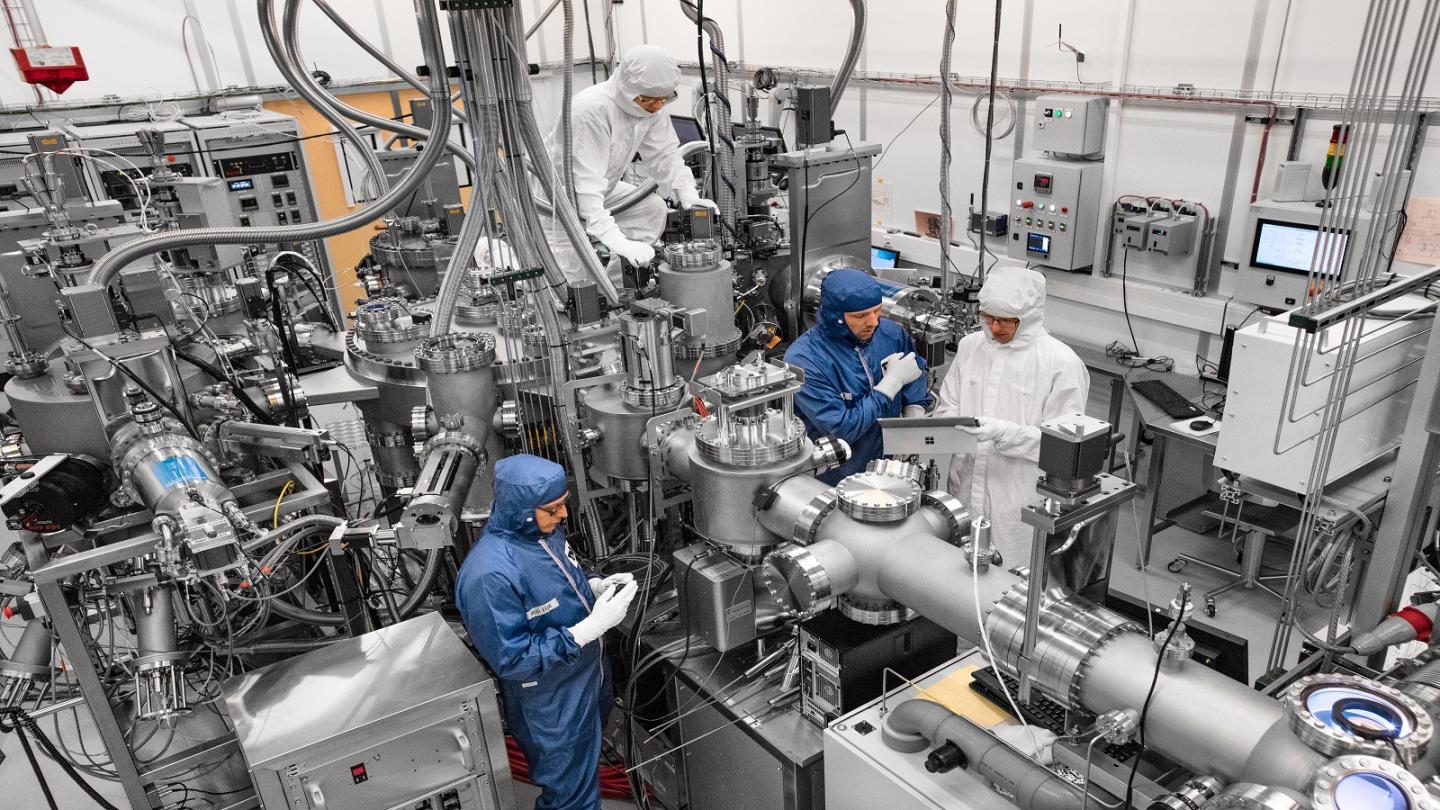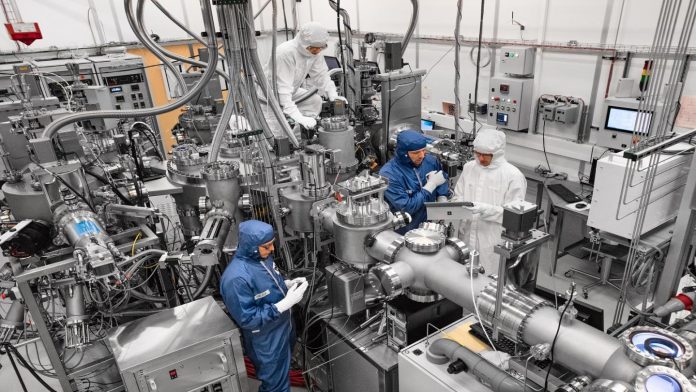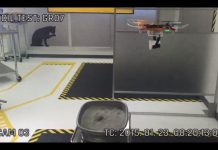
IMAGE: Scientists in Microsoft Quantum Lab Delft conducting research in pursuit of a topologically protected qubit. Microsoft is one of seven new computing, tech and finance companies to join the Chicago…
view more
Credit: Microsoft
The Chicago Quantum Exchange (CQE), a growing intellectual hub for the research and development of quantum technology, has added to its community seven new corporate partners in computing, technology and finance that are working to bring about and primed to take advantage of the coming quantum revolution. These new industry partners are Intel, JPMorgan Chase (NYSE:JPM), Microsoft (NASDAQ:MSFT), Quantum Design, Qubitekk, Rigetti Computing and Zurich Instruments.
The CQE and its corporate partners advance the science and engineering necessary to build and scale quantum technologies and develop practical applications. The results of their work — precision data from quantum sensors, advanced quantum computers and their algorithms, and securely transmitted information — will transform today’s leading industries. The addition of these partners brings a total of 13 companies into the CQE to work with scientists and engineers at universities and the national laboratories in the region.
“These new corporate partners join a robust collaboration of private and public universities, national laboratories, companies and non-profit organizations. Together, their efforts — with federal and state support — will enhance the nation’s leading center for quantum information and engineering here in Chicago,” said University of Chicago Provost Ka Yee C. Lee.
Based at the University of Chicago’s Pritzker School of Molecular Engineering, the CQE is anchored by the University of Chicago, the U.S. Department of Energy’s (DOE) Argonne National Laboratory and Fermi National Accelerator Laboratory (both operated for DOE by the University of Chicago), and the University of Illinois at Urbana-Champaign, and includes the University of Wisconsin-Madison and Northwestern University.
“Developing a new technology at nature’s smallest scales requires strong partnerships with complementary expertise and significant resources. The CQE enables us to engage leading experts, facilities and industries from around the world to advance quantum science and engineering,” said David Awschalom, the Liew Family Professor in Molecular Engineering at the University of Chicago, senior scientist at Argonne and director of the CQE. “Our collaborations with these companies will be crucial to speed discovery, develop quantum applications and prepare a skilled quantum workforce.”
CQE member institutions engage with corporate partners in collaborative research efforts, joint workshops to develop new research directions, and opportunities to train future quantum engineers. The CQE has existing partnerships with Boeing, IBM, Applied Materials, Inc., Cold Quanta, HRL Laboratories, LLC, and Quantum Opus, LLC.
The CQE’s newest corporate partners include a broader set of companies ranging in interest and expertise from quantum communication hardware to quantum computing systems and controls to finance and cryptography applications.
They include:
- Intel is advancing a systems-level approach to quantum research that demonstrates quantum practicality and a path to commercially viable quantum computing systems. Its research efforts — in partnership with QuTech, the quantum institute of TU Delft and TNO — include technology advancements in silicon spin qubits, control and interconnect systems for large-scale quantum systems, and quantum algorithms.
- JPMorgan Chase is a leader in the field of quantum algorithms and applications for financial use cases, such as portfolio optimization, option pricing and reinforcement learning, as well as general foundational algorithms with cross-domain applicability, such as quantum search. The firm has made a significant investment in quantum computing, collaborating with multiple quantum providers and forums. Its research team is also actively working in the area of post-quantum cryptography.
- Microsoft has driven advances in scalable quantum technology for nearly two decades. Their global team of physicists, computer and materials scientists, engineers, developers and enthusiasts are collaborating with a broad community to advance a full-stack quantum computing system, develop practical solutions, enable a quantum community, and accelerate quantum workforce development.
- Quantum Design manufactures automated characterization systems that allow research and exploration of new materials & devices. With the partnership, Quantum Design will support research and advanced teaching at the CQE, launching a new student laboratory for quantum measurements and the study of quantum materials.
- Qubitekk develops and manufactures a variety of key components for quantum networks. Qubitekk provides entangled photon sources in its support for researchers across the CQE working on the Argonne quantum loop.
- Rigetti Computing builds and delivers integrated quantum systems and offers a distinctive hybrid cloud computing access model for practical near-term applications. The company owns and operates Fab-1, the world’s first dedicated quantum integrated circuit foundry.
- Zurich Instruments develops advanced instrumentation including quantum control systems that enable reliable control and measurement of superconducting qubits and silicon spin qubits. The company will collaborate with the CQE on student opportunities and research.
Many of the new industry partners already have ongoing or recent engagements with CQE and its member institutions. In recent collaborative research, spectrally entangled photons from a Qubitekk entangled photon source were transported and successfully detected after traveling through one section of the Argonne quantum loop.
Another example of these relationships is the work that University of Chicago computer scientist Fred Chong and his students have done with both Intel and Rigetti Computing on software and hardware solutions. With Intel’s support, Chong’s team invented a range of software techniques to more efficiently execute quantum programs on a coming crop of quantum hardware. For example, they developed methods that take advantage of the hierarchical structure of important quantum circuits that are critical to the future of reliable quantum computation.
Jim Clarke, director of quantum hardware at Intel, looks forward to further collaborations with CQE members.
“Intel remains committed to solving intractable challenges that lie on the path of achieving quantum practicality,” said Clarke. “We’re focusing our research on new qubit technologies and addressing key bottlenecks in their control and connectivity as quantum systems get larger. Our collaborations with members of the CQE will help us harness our collective areas of expertise to contribute to meaningful advances in these areas.”
The CQE’s partnership with JPMorgan Chase will enable the use of quantum computing algorithms and software for secure transactions and high-speed trading.
“We are excited about the transformative impact that quantum computing can have on our industry,” said Marco Pistoia, managing director, head of applied research and engineering at JPMorgan Chase. “Collaborating with the Chicago Quantum Exchange will help us to be among the first to develop cutting-edge quantum algorithms for financial use cases, and experiment with the power of quantum computers on relevant problems, such as portfolio optimization and option pricing.”
Applying quantum science and technology discoveries to areas such as finance, computing and healthcare requires a robust workforce of scientists and engineers. The CQE integrates universities, national laboratories and leading companies to train the next generation of scientists and engineers and to equip those already in the workforce to transition to quantum careers.
“Microsoft is excited to partner with the Chicago Quantum Exchange to accelerate the advancement of quantum computing,” said Chetan Nayak, general manager of Microsoft Quantum Hardware. “It is through these academic and industry partnerships that we’ll be able to scale innovation and develop a workforce ready to harness the incredible impact of this technology.”
###
Argonne National Laboratory seeks solutions to pressing national problems in science and technology. The nation’s first national laboratory, Argonne conducts leading-edge basic and applied scientific research in virtually every scientific discipline. Argonne researchers work closely with researchers from hundreds of companies, universities, and federal, state and municipal agencies to help them solve their specific problems, advance America’s scientific leadership and prepare the nation for a better future. With employees from more than 60 nations, Argonne is managed by UChicago Argonne, LLC for the U.S. Department of Energy’s Office of Science.
The U.S. Department of Energy’s Office of Science is the single largest supporter of basic research in the physical sciences in the United States and is working to address some of the most pressing challenges of our time. For more information, visit https:/
TDnews















